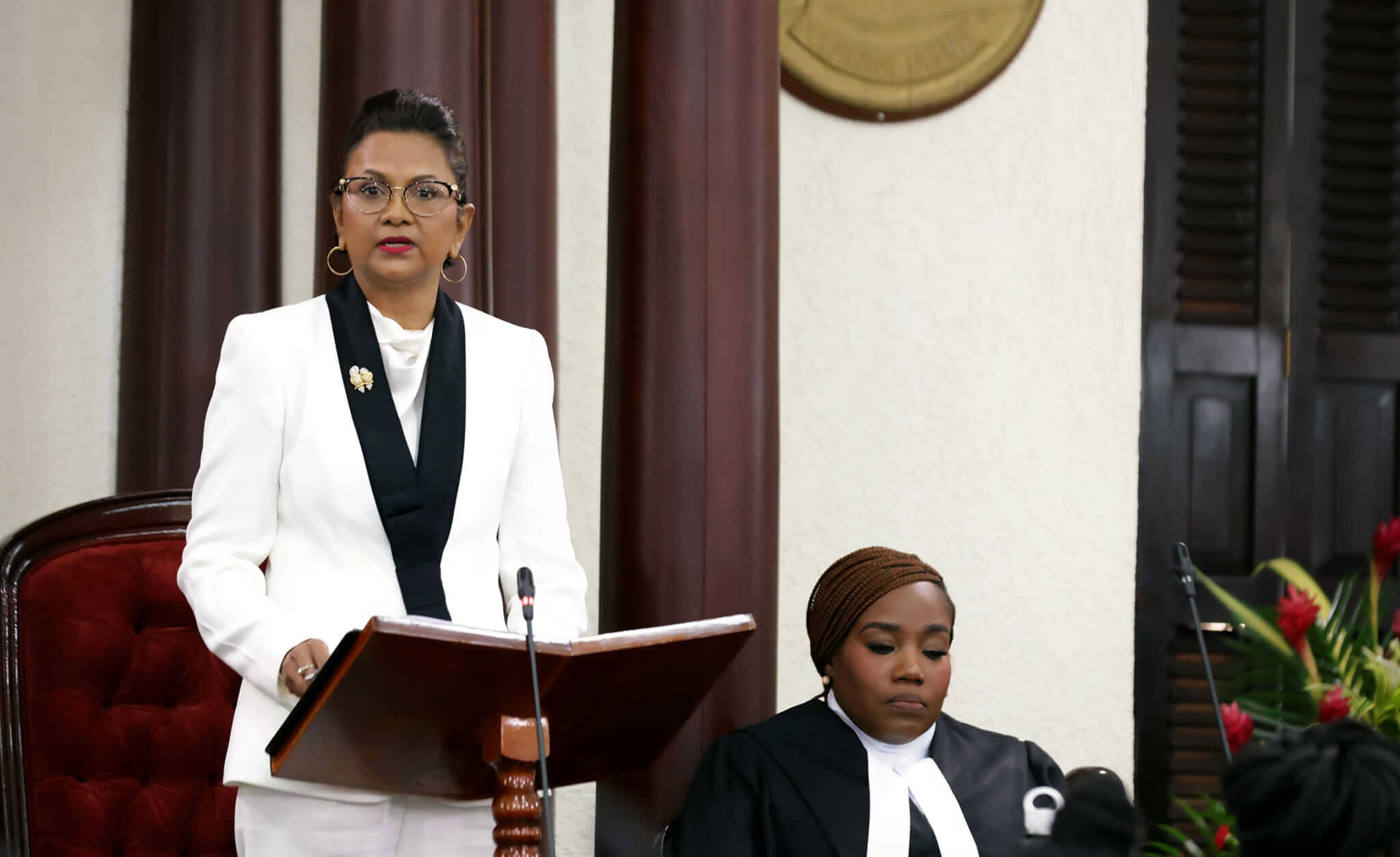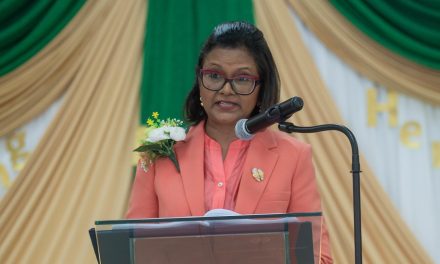Speech from Her Excellency Paula-Mae Weekes ORTT, President of the Republic of Trinidad and Tobago at the President’s Awards for Service Excellence and Innovation in the Public Sector – 5th December 2018
This evening, we gather to recognise and celebrate innovation, progress and excellence in the Public Sector, and those who bring it about.
Our public institutions are the platforms upon which the people of Trinidad and Tobago are served and the bridge between citizen and government. They should be functional, modern and well-run.
Our Public Service has earned an invidious reputation for ineptitude, inefficiency and stagnation. While no one doubts that there are pools of competence within the service, the overall impression is disheartening and alarming. Alarming because our economic climate, our international partners, the reasonable increasing demands of our population and technological advances all require that it be efficient, sophisticated and responsive to the needs of those it serves. It is high time that we eradicate this stigma.
As a nation, we have committed to fulfilling the United Nations Sustainable Development Goals (SDGSs) which seek to eliminate many of the challenges and inefficiencies that hamper the development of countries. Goal 9 seems to be apposite to this evening’s awards: Build resilient infrastructure, promote inclusive and sustainable industrialization and foster innovation.
The Public Sector must therefore become an exemplar of excellence in service delivery, with the capacity to manage the technological, social and economic changes that have, and will continue, to take place. Trinidad and Tobago cannot be left behind in the global march to progress, and good leadership and innovation are two prerequisites for that journey.
According to John C. Maxwell, an American pastor, speaker and author, “A leader is one who knows the way, goes the way, and shows the way.” A good leader is one who understands that he or she does not always generate the best ideas for charting the way forward but who is willing to acknowledge that the best ideas can come from lower down the totem pole and is ever willing to encourage, support and champion the vision of others. We need such leaders not only in our homes, communities and private enterprise but also in the public sector.
Our institutions will prosper if they are led by those with the unambiguous understanding that if one is to lead, one must also serve, and sometimes that requires a suppression of the ego. The seven short-listed submissions in the President’s Award for Service Excellence and Innovation in the Public Sector were inspirational and one common thread was that the forward-thinking ideas didn’t come from the head but rather from those in the trenches.
The team members were leaders in their own right who understood that service requires concrete action; that hopes and dreams are not going to bring about the change we need in our institutions. The challenges before us demand deeper collaboration, evidence-based decision-making and concerted action at every level.
Innovation is the currency of progress. Our circumstances require more creative solutions or as the Inter-American Development Bank (IDB) puts it, “unfollowing.” We need to be enablers of disruptive thinking, risk taking and innovation if we want to keep pace with the evolving demands made of our public sector institutions. We can take pattern from the leaps and bounds made by countries such as Estonia, a small European nation with a population of 1.3 million, which within the last 20 years has transformed its public sector into one of the most highly digitalised and competent models in the world. Their harnessing of technology represents just one feature of the rapidly changing landscape.
The fourth industrial revolution is forcing a change in the way we do business in the public sector – blockchain technology, artificial intelligence and biotechnology are the way of the future. These new technologies usher in the transformation of entire systems of production, management, and governance. If leveraged correctly, they can bring about a fully digitalised and highly efficient public sector, able to fulfil the needs of an increasingly technologically literate population. An important feature of innovation is being unafraid of failure, being willing to try, fail and then try again. We must be prepared to go brave, go bold.
It is often said that the first step of any endeavour is the most difficult. I beg to disagree. Having participated in my share of endurance races over the years, I can tell you that the true testing usually comes long after the sound of the whistle, when down the road you hit the wall and lethargy, weariness and frustration set in. Even when the finish line is in sight, it takes a combination of resolution of mind and recharging of body to reach it. And in Public Sector Transformation, the marathon has a moving finish line with which we must keep stride.
One notorious energy sapper is the resistance to change in some members of an organisation. This may be caused by burnout, lassitude or fear of the unfamiliar. It is often the case that progress is stymied because of unwillingness of individuals to subscribe to the requirements of a new environment.
The famous “Allegory of the Cave” from Plato’s Republic, tells the story of prisoners who have spent their lives chained to a wall, seeing and knowing only the shadows that have been placed before them. When one of them escapes into the light, he comes to appreciate both reality and the inaccuracy of his previous worldview. Though he returns to inform his fellow cave dwellers of the truth, he is met with great scepticism and steadfast reluctance on their part to leave.
The purpose of ‘unfollowing’ is to bring everyone into the light – even if kicking and screaming. We need to find ways to work through the myopia and opposition that often impede progress in our institutions, but every effort should be made to bring everyone on board. Buy-in by all stakeholders is key to cultivating and maintaining a climate of continuous growth.
Today we celebrate the victories that have been won, despite difficulties along the way. We hail those change agents who have seen the light and have worked to bring about greater service excellence and innovation in the public sector. I eagerly await the societal transformation that these advances will bring, as that is the true litmus test of these awards.
So, what can the rest of us public servants, whose aim is to render service with enthusiasm do in our little corners starting now. How do we standardise public service excellence and heighten the effectiveness with which we manage our financial and human capital? Some of you have ideas for radical change in the way you do business. Inspired by the examples of our fellow public servants, let us hasten to the drawing board, summon our most creative selves and, with the available resources, craft viable programmes and solutions that meet the needs of our clients, the public.
As the public servant-in-chief I speak to other public servants and say the ball is now in our court, don’t be left behind. I look forward to your participation in the next iteration of this competition. The bar has certainly been set high, I challenge you to surpass the achievements that we applaud this evening.
In closing, I congratulate all of the participants and while we award only three of the teams today, I salute all seven finalists and on behalf of the nation, thank you for your sterling service as you rehabilitate the image of the public sector. Know that your contribution is critical to the transformation of our country and we are forever in your debt.
Thank you.






